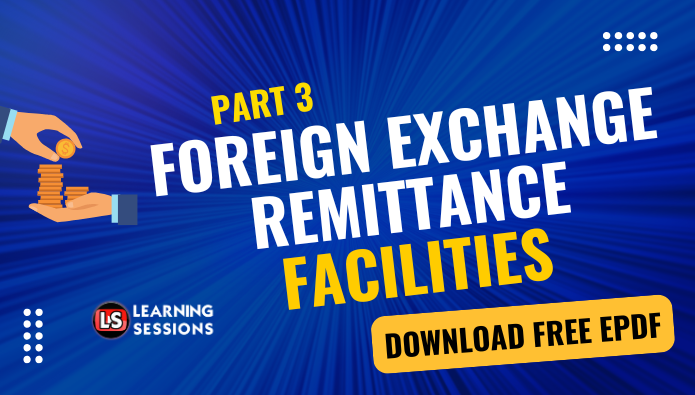Did you know that failing to surrender unused foreign exchange within the stipulated time can lead to compliance issues? Many bankers and financial professionals struggle to understand the regulations surrounding foreign exchange surrender, operational guidelines, and TDS deductions on remittances.
📚 JAIIB Study Resources 📚
👉 Check Here
👉 Check Here
👉 Check Here
👉 Get Tests Here
👉 Check Here
Who should watch this?
- Banking professionals appearing for JAIIB exams
- Finance and compliance officers handling forex transactions
- Anyone dealing with foreign exchange regulations
👉 Before we dive in, watch this video for a complete breakdown:
📌 Foreign Exchange Surrender Guidelines
What is the Period of Surrender for Foreign Exchange?
- As per FEMA, any unused or unspent foreign exchange should be surrendered to an authorized dealer (AD) within 180 days.
- Travelers can retain up to USD 2000 in currency notes or traveler’s checks for future trips.
- There is no limit on retaining foreign coins.
✅ Example: A businessman returning from Singapore with USD 500 unspent can either use it for future travel or surrender it within 180 days.
💼 Operational Guidelines for Authorized Dealers (ADs)
What Must ADs Ensure?
- Verify and maintain records of KYC documents before processing any forex transactions.
- Transactions must comply with FEMA & AML (Anti-Money Laundering) regulations.
- Conduct proper due diligence to ensure the legitimacy of the funds.
- Maintain detailed transaction records for auditing and regulatory compliance.
📜 Additional Foreign Exchange Considerations
Restrictions on Foreign Exchange Transactions
While foreign exchange transactions are permitted under FEMA, there are certain restrictions imposed to prevent illicit financial activities. Some of these include:
- Foreign remittances for lotteries, sweepstakes, and gambling are prohibited.
- Remittance for foreign real estate purchases is subject to stringent restrictions.
- Investments in overseas cryptocurrency markets are not permitted under LRS.
- Any remittance above USD 250,000 per year requires prior RBI approval.
Principles and Practices of Banking | Module A | JAIIB Unit 8 Part 2 [FREE EPDF]
Impact of Non-Compliance
Non-compliance with FEMA and RBI guidelines can result in severe penalties, including hefty fines and legal proceedings. It is crucial for businesses and individuals to adhere to these regulations to avoid financial and legal repercussions.
📥 Download PDF Notes for This Video
Want a detailed PDF of today’s session with key takeaways and notes? Download it now:
(Note: Save the number 8360944207 as “JAIIB Guru” on WhatsApp and send ‘JAIIB PDF’ to receive updates.)
Conclusion
Foreign exchange transactions are crucial in banking, and understanding their regulations can make compliance easier. In this session, we covered:
- Surrender periods & forex retention rules
- Operational guidelines for ADs & compliance measures
- TDS deductions on remittances
- Indo-Nepal remittance scheme
- Restrictions on foreign exchange transactions
- Implications of non-compliance
💬 Let’s discuss! What are your thoughts on foreign exchange regulations? Drop your questions & feedback in the comments.
🚀 Subscribe for more insights and turn on notifications so you don’t miss the next session!





